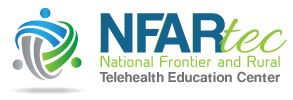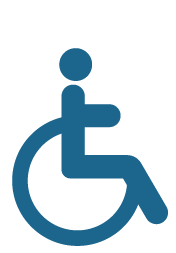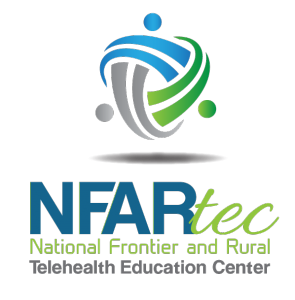Co-Occuring Disorders for Patients with Mental Health Concerns & SUDs
The co-existence of mental health and a substance use disorders is referred to as a co-occurring disorder. In 2018, 19.3 million individuals had a substance use disorder (SUD) while 19.1 individuals had a mental health disorder with over 9 million having both disorders according to the the National Survey on Drug Use and Health (SAMHSA). According to current research and best practices, it is essential to identify and address substance use issues for patients in mental health treatment settings as it improves the overall treatment outcomes. Likewise, initiating assessment and interventions that have a co-occurring disorder focus is crucial as treatment works best when both the substance use AND the mental health disorder are addressed together during the treatment process.
This 7-week online Enhanced Professional Learning (EPL) series will include blended activities of virtual online groups and self-study related to understanding and integrating SUD knowledge into the provision of Mental Health Disorders treatment. This will include interactive discussions, videos, performance-based feedback, articles, and activities. Topics will include such areas as screening, signs and symptoms, ASAM criteria, scope of practice and referral resources.
WHEN:
Every Wednesday, April 1 – May 13, 2020 from 12:30 – 2:00 PM Mountain / 1:30 – 3:00 PM Central
OBJECTIVES:
- Learn foundational knowledge on core aspects of Substance Use Disorders.
- Understand the prevalence of Mood Disorders, Anxiety, Personality Disorders and Trauma and the implications in the treatment setting for those diagnosed with these and a SUD.
- Demonstrate an understanding of the implications of Substance Use Disorders on the treatment and recovery process of Mental Health Disorders for those diagnosed with both.
- Demonstrate a basic understanding of screens that can be used in a treatment setting to identify substance use and Co-Occurring Disorders.
- Identify at least three strategies towards integration that could be used in a Mental Health Disorder treatment care setting to improve outcomes by addressing mental health and SUD concurrently.
- Identify at least two issues that can be addressed to increase competence of treatment providers in the area of Co-Occurring Disorders in a Mental Health Disorder treatment agency.
- Identify risk factors and signs of Co-Occurring Disorders as well as tools used to identify these.
- Understand the increased risk factors as well as warning signs for suicide for those diagnosed with a Co-Occurring Disorder.
TARGET AUDIENCE:
Professionals in Behavioral Health, Mental Health Disorders, and medical practitioners located in the Mountain Pains MHTTC Region (HHS Region 8).
PARTICIPANT COMMITMENT & EXPECTATIONS:
- View a 20-minute tutorial on how to use the videoconferencing platform by April 1
- Attend a live 1-hour Orientation Session on Wednesday, April 1, 12:30 pm Mountain/1:30 pm Central
- Commit to 6-weeks of training sessions for 1.5 hours weekly on scheduled series days/times and complete 1-hour of weekly learning activities
- Access to appropriate technology to utilize online videoconferencing platform (i.e., an internet connection, built-in or USB webcam, computer/tablet, built-in/USB/Bluetooth speakers and microphone)
- Be prepared and actively engage while on camera during the scheduled series time
FACILITATOR:
- Christina Boyd, LSCSW, LCAC
NO COST TO PARTICIPATE
Registration for this series is limited to 40 providers who work in Region 8 MP-MHTTC states on a first come, first served basis (Region 8 includes Colorado, Montana, North Dakota, South Dakota, Utah, and Wyoming). It is expected participants will view the 20-minute video tutorial: attend the live technology training; be prepared for and join each session; and actively engage in group discussions. Due to limited enrollment, if you cannot commit to the full participant requirements, please defer this registration opportunity to others.
Note: Registrants enrolled in this series are expected to attend the April 1 and April 8 sessions. In addition, it is expected that participants will have access to the appropriate technology by April 15 and be on camera in order to fully participate. This is not a webinar series and active participation to gain/improve skills are required.
CONTINUING EDUCATION:
The series has been approved for a total of 16 contact hours (15-hours content instruction and 1-hour orientation session). No credit will be awarded for non-attendance or partial attendance. The knowledge and skills learned should be applied within the framework of any applicable Operating and/or Credentialing regulations in your State of practice.
QUESTIONS:
Please contact MPMHTTC coordinator Trisha Dudkowski at tdudkowski@casat.org or by phone at 866-617-2816 (toll-free).
ACCESSIBILITY:
If any accommodations are needed, please contact Trisha Dudkowski at tdudkowski@casat.org or by phone at 866-617-2816 (toll-free). Requests should be made as soon as possible and preferably at least two weeks prior to the scheduled event.
All links in this series will open up as new windows in your browser. Please contact us if you have any access issues.





